
What is Peer support and 12-step programs ?

Peer assistance is a sort of support given by those who have firsthand knowledge of a certain problem or difficulty.
It entails people with comparable experiences banding together to assist, mentor, and advise one another emotionally and practically. Online communities, support groups, and one-on-one interactions are just a few of the different ways that peer support can be provided.
Peer support groups of the 12-step variety are dedicated specifically to the recovery from addiction.
Alcoholics Anonymous (AA) is the most well-known 12-step program, but there are additional 12-step groups for other kinds of addictions, including Narcotics Anonymous (NA) and Gamblers Anonymous (GA). These programs are built on a set of 12 steps that individuals must complete in order to become sober and keep it. Admitting that you have no control over your addiction, asking for help from a higher power, making atonement for past wrongs, and continuing to reflect on and improve yourself are all milestones in the recovery process.
The emphasis in both peer support and 12-step programs is on the ability of community and connection to support people in overcoming obstacles and improving their lives. Participants might gain consolation, empathy, and inspiration from those who have gone through similar hardships by sharing their experiences.
A person's recovery journey might include both peer support and 12-step programs.
They can provide people a sense of connection and belonging, which can be especially beneficial for those who might feel alone or alienated in their challenges.
Peer support helps people connect with others who have experienced similar things and can provide support and useful ideas.
This can be especially useful for people who might be reluctant to look for assistance from more conventional sources, including mental health specialists. Peer support can also give people a feeling of empowerment since it allows them to actively participate in both their own recovery and the rehabilitation of others.
Similar to this, 12-step groups can give recovering people an organized and encouraging environment.
The 12 steps are intended to assist people in increasing their level of self-awareness, dealing with their past habits, and creating coping skills to prevent relapse. Meetings are frequently run by people who have finished the program themselves, fostering a sense of community and peer support.
Noting that not everyone will find peer support and 12-step programs helpful, people should look into a range of choices when looking for help with addiction or other problems. These services are not intended to substitute professional treatment, and people with serious or complicated problems might need further assistance from mental health specialists.
Peer support and 12-step programs can be utilized to assist people with a variety of mental health issues, such as anxiety, depression, and trauma, in addition to addiction recovery. For instance, peer support groups for depression may offer a secure setting where people may open up about their experiences, talk about coping mechanisms, and give and receive support from one another.
In recent years, 12-step programs and online peer assistance have also grown in popularity.
Through these programs, people can communicate with others who have had comparable experiences in the convenience of their own homes. For people who reside in rural areas, have limited mobility, or desire to remain anonymous, online groups can be especially useful.
Individuals recovering from addiction or other mental health issues can benefit greatly from peer support and 12-step programs. These programs provide a sense of belonging and community, as well as helpful guidance and support and a planned framework for continuous rehabilitation.
Although peer support and 12-step programs can be beneficial for many people, it's important to keep in mind that they might not be the right fit for everyone. Some people could favor other forms of assistance or require a higher level of care. Working with a mental health specialist to choose the best course of treatment for your particular needs is crucial.
Should remember that professional mental health care cannot be replaced by peer support or 12-step programs.
These programs can be a great source of encouragement and support, but they cannot give the same degree of clinical care that a mental health expert can.
It's critical to seek assistance if you are dealing with addiction or other mental health issues. Peer support groups, 12-step programs, and mental health specialists are just a few of the resources accessible. You can get the assistance you need to accomplish and maintain long-term recovery with the correct support.
Participating in peer support and 12-step programs may provide the following advantages:
Additionally, taking part in peer support and 12-step programs can aid in lowering feelings of loneliness, which are typical for people who are battling addiction or mental health issues. You can feel less alone and more supported by interacting with people who can relate to what you're going through.
To be aware that not everyone will be a good fit for these programs. When seeking help for addiction or other mental health issues, it's crucial to take your unique needs and preferences into account. Speaking with a mental health expert can be a good first step if you're not sure where to begin.
Participating in peer support and 12-step programs may present certain difficulties or disadvantages, such as:
Lack of diversity:
Some 12-step and peer support programs could not be open to or accepting of people with different backgrounds or identities.
Limited access:
Some people might not have easy access to peer support groups or 12-step programs in their community, or they might not have the financial resources to get to meetings.
Limited efficacy:
While peer support groups and 12-step programs can be beneficial for many people, they might not work for everyone or might not offer the level of assistance that certain people need.
Lack of confidentiality:
Despite the fact that anonymity and confidentiality are often prioritized in peer support and 12-step programs, there is still a possibility that information will be disclosed to others outside the group.
Potential for negative or damaging group dynamics:
Since peer support groups and 12-step programs are led by people with lived experience, the standard of the support might vary.
To keep these potential difficulties in mind while thinking about joining 12-step and peer support groups.
However, many people have discovered that these programs are an invaluable resource for support and inspiration along the road to recovery. As with any sort of assistance or therapy, it's crucial to think about your unique requirements and preferences and to collaborate with a mental health professional to choose the most appropriate course of action.
should mention that peer support and 12-step programs are not the only types of support groups and programs available. For instance, some people might prefer support groups that concentrate on particular mental health issues, like anxiety or PTSD, while others might prefer groups that concentrate on particular communities, like LGBTQ+ people or veterans. Additionally, some people might favor group therapy facilitated by mental health specialists over individual therapy.
Finding the support and treatment that are most effective for you is ultimately the most crucial step. In order to determine what feels the most supportive and beneficial, this may entail trying out various support groups or treatment approaches.
It's critical to seek assistance if you're dealing with addiction or mental health issues.
Although taking this step might be challenging and perhaps frightening, there are numerous services that can assist you. Know that you are not alone and that there is assistance available to help you on your recovery journey, whether you decide to take part in peer support and 12-step programs or seek other forms of support.
It's also important to note that 12-step programs and peer support can be used in conjunction with other types of treatment, including medication and counseling. As you progress toward your recovery goals, these programs can serve as an extra source of support and responsibility. Furthermore, a lot of mental health professionals advise people who are recovering from addiction or other mental health issues to take part in some kind of continuous assistance, including peer support groups or other kinds of help.
Peer support and 12-step programs may also provide inspiration and optimism, which is a potential advantage.
You can realize that rehabilitation is possible and that you are not alone in your troubles by getting in touch with those who have overcame similar obstacles. This may serve as a strong motivation.
For people overcoming addiction or other mental health issues, peer support and 12-step programs can be a very helpful source of encouragement and support. These initiatives provide a sense of belonging, useful guidance and support, and a planned framework for continuous recovery. They might not be the ideal option for everyone, but they can support other treatments and serve as a source of motivation and hope as you strive toward your recovery objectives.
It can be beneficial to do some research and discover a peer support or 12-step program that fits your needs and values if you're thinking about joining one. Many programs include websites or online discussion boards where you may find out more about them and get in touch with other participants. For advice on programs that might be a suitable fit for you, you can also consult with a mental health specialist or an addiction counselor.
It's crucial to keep in mind that 12-step and peer support programs are intended to be a safe and supportive environment when taking part in them. It's crucial to respect others' privacy and to refrain from passing judgment or making negative remarks. Furthermore, it's crucial to have patience with yourself as you work toward your objectives and to have realistic expectations for your recovery path.
To remember that the process of recuperation is not universal.
There may be ups and downs along the way, and what works for one person may not work for another. Recovery is nevertheless feasible with the appropriate resources and assistance.
Love that help is available if you or someone you love is battling addiction or other mental health issues.
To find out more about your alternatives for assistance and therapy, get in touch with a mental health professional or an addiction counselor.
Should remember that recovery is a journey with many ups and downs.
It's crucial to maintain hope and not lose heart in the face of setbacks. Continuous support, whether it comes from peers, 12-step programs, or other types of therapy, can be crucial in assisting people in staying on track and achieving their recovery objectives.
Must give self-care a high priority when going through recovery.
This can entail taking care of your physical health through exercise and a good diet, engaging in hobbies or activities that you enjoy, and adopting stress-relieving techniques like yoga or meditation. It's also crucial to take care of your mental health, whether that entails counseling, medication, or other types of support.
Being nice and patient with yourself as you work toward your recovery goals is ultimately what's most crucial.
There is no one right approach to recover; it is a journey. However, it is possible to beat addiction and other mental health issues and have a happy, meaningful life with the correct help and tools.
Should understand that healing is not a straight-line process, and people may occasionally struggle or encounter setbacks. It's crucial to have a solid support system in place to help you deal with these difficulties and continue on your path to recovery.
Reaching out for assistance is a crucial first step if you or someone you love is dealing with addiction or other mental health issues. There are numerous resources accessible, including medication-assisted treatment, 12-step and peer support groups, individual counseling, and group therapy.
Must put self-care and healthy coping mechanisms first while going through rehabilitation.
Finding techniques for stress management, such as exercise, meditation, or hobbies, might be part of this. Building a network of relatives and friends who are sympathetic to and supportive of your recovery process can also be part of it.
The road to recovery from addiction and other mental health issues is one that frequently calls for continuing assistance and resources. Peer support groups and 12-step programs can be great places to find accountability and a sense of community, but they might not be the right fit for everyone. The most crucial thing is to emphasize self-care while you work toward your recovery objectives and identify the services and assistance that are most helpful for you.
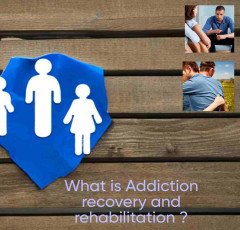
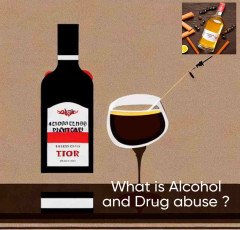
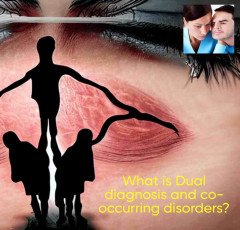

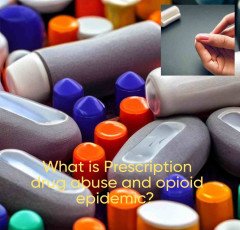

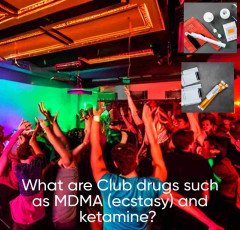








 Hot Bags For Pain Relief
Hot Bags For Pain Relief  One World Collection
One World Collection  NordPass
NordPass  Sennheiser
Sennheiser  TitTok Revolution
TitTok Revolution  Online Technology Classes
Online Technology Classes  Best Sellers On Amazon
Best Sellers On Amazon  Amazon Best Selling Products
Amazon Best Selling Products  BEST SELLER TOP10
BEST SELLER TOP10  Women Fashion
Women Fashion  SOFAS
SOFAS  SEO Checklist
SEO Checklist  Creative Brief For Video Shoot
Creative Brief For Video Shoot  Best Robotic Vacuum Cleaners
Best Robotic Vacuum Cleaners  RPM 3.0
RPM 3.0  1150+Trendy kids coloring pages Bundle
1150+Trendy kids coloring pages Bundle  NordLocker
NordLocker  ELECTRONIC ACCESSORIES
ELECTRONIC ACCESSORIES  ASPINAL LONDON
ASPINAL LONDON  All Wireless Products
All Wireless Products  Smart Doorbell
Smart Doorbell  Men Clothing
Men Clothing  Best Home Appliances
Best Home Appliances  NordVPN
NordVPN  The Click Engine
The Click Engine  Unreal Engine 5 For Beginners Learn The Basics Of Virtual Production
Unreal Engine 5 For Beginners Learn The Basics Of Virtual Production  Unlimited access to classes on illustration, photography, design, film, music
Unlimited access to classes on illustration, photography, design, film, music  Only For The United States
Only For The United States  Acer Laptop
Acer Laptop  Best Selling Books
Best Selling Books  The Secret Email System
The Secret Email System  Favorite Company (Cuelinks)
Favorite Company (Cuelinks)  Top Rated From Amazon
Top Rated From Amazon  ASUS Laptop
ASUS Laptop  Artificial Intelligence
Artificial Intelligence  Online Marketing
Online Marketing  Graphics & Design
Graphics & Design  Hello Theme
Hello Theme 
















